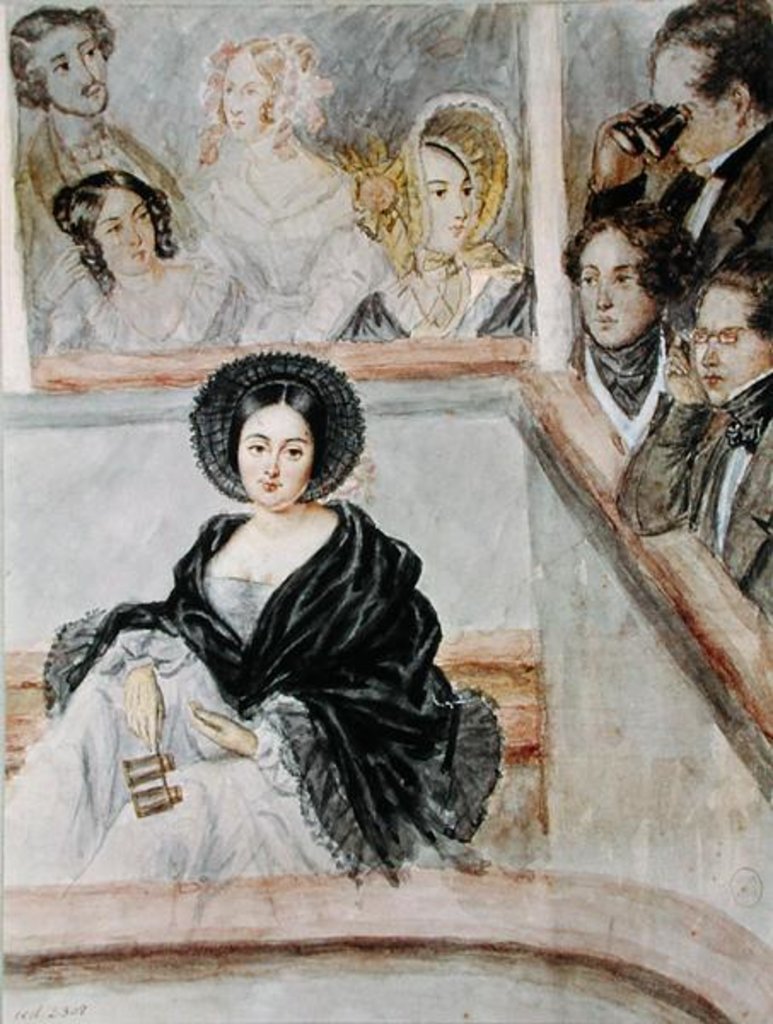René Weis' new monograph on Marie Duplessis makes big claims even before getting past the title page. Marie Duplessis, the charismatic and consumptive courtesan of nineteenth-century Paris, has long fascinated readers of Dumas' novel and lovers of Verdi's opera... to say nothing of Garbo devotees. I'm not exempt from the fascination, and have been disappointed by the comparative dearth of scholarly attention paid to her. I was eager to see what Weis would make of her history and her legend.
 |
| Marie Duplessis at the theatre |
As should surprise no one, I'm always interested in recovering women's histories from their romanticized legends. Moreover, there are so many layers to the ways in which the character of Marguerite was created and recreated, that -- possibly with professional bias -- I felt eager to read an academic approach to excavating Duplessis' history. The possessions of Marguerite, auctioned in the opening of Dumas' novel, and that of Zeffirelli's
Traviata film, are famously based on those of Duplessis. The edition of
La Dame aux Camélias I read included a rather sentimental preface, retailing the nineteenth century's fascination with its own romanticized version of Marguerite/Marie's history. Personally, I think Dumas
fils and Verdi are both much less sentimental than their reception gives them credit for. On the whole, Weis' work bears testimony to remarkably resourceful research in attempting to create an accurate portrait of Marie, using her own correspondence, the testimonies of contemporaries, and a wealth of detail about the world in which she lived: riding horses, furnishing apartments, and, not least, consuming culture, as a regular attendee of the opera and theatre, and an avid reader. I was fascinated by this vision of an intelligent woman, both sincerely enjoying a variety of pursuits, and crafting, as a
demimondaine, an elaborate public persona.
The Real Traviata is an impressively researched work; Weis mined multiple archives for diverse sources, and uses Duplessis' laundry lists, library inventories, and shopping receipts take their place alongside her extensive correspondence, and the posthumous narrative sources which are at once challenging and indispensable. The book is available
here, for 30% off the list price with this code: AAFLYG6

